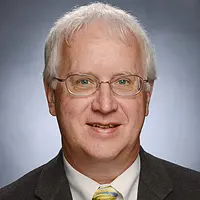RESEARCH TRIANGLE PARK, NC— RTI International has named Georgiy Bobashev, Ph.D., J. Lynn Davis, Ph.D., and Meera Viswanathan, Ph.D., as RTI Fellows. Senior Fellow Dorota Temple, Ph.D., has been promoted to Distinguished Fellow level.
This year's new fellows are accomplished in a number of research areas—from helping to better understand alcohol and tobacco addictions to advancing energy efficient lighting and 3-D imaging technology.
"We are proud to recognize this group of scientific and technical leaders who excel greatly in their fields," said RTI Fellow Program Chair Don Bailey, Ph.D. "They have made significant contributions to the institute's scientific stature, and the Fellows program will allow them to produce even more outstanding results."
Since its establishment in 2001, the RTI Fellow Program has provided professional opportunities for exceptionally talented RTI staff committed to science, technology research and policy analysis. The program is designed to support RTI's mission to improve the human condition, and includes three levels: Fellow, Senior Fellow and Distinguished Fellow.
Georgiy Bobashev
Bobashev, a senior data scientist at RTI, leads studies on substance abuse, HIV, and chronic diseases, with a methodological focus on predictive modeling. He spearheads the development of new predictive methods and applications to a broad range of research problems.
He has co-authored more than 60 publications and has been a principal investigator on a number of NIH grants. In addition, he is a contributing author of The Health Consequences of Smoking, 50 Years of Progress—a U.S. Surgeon General report that highlights progress in tobacco control and prevention through new data.
Bobashev holds a doctorate in biomathematics from North Carolina State University and a master's in physics/mechanical engineering from St. Petersburg Technical University, Russia. He conducted his post-doctoral training in biostatistics/mental hygiene at Johns Hopkins University.
J. Lynn Davis
Davis, director of engineering research at RTI, is a top expert on energy efficient lighting technologies. His work includes developing predictive models of the long-term reliability of LED-based lighting sources and designing and demonstrating advanced lighting systems that enhance learning in schools and productivity in offices.
His work resulted in RTI being honored with an achievement award from the U.S. Department of Energy for efforts to advance solid-state lighting technology. Davis also led the development of the first electro-technical, product-oriented standard in nanotechnology.
Davis holds a doctorate in chemistry from the University of Delaware and a bachelor's degree in chemistry from the University of North Carolina at Chapel Hill (UNC-CH). He performed his post-doctoral work in surface science at the Department of Energy Laboratory in Ames, Iowa, and Iowa State University.
Dorota Temple
Temple, a Distinguished Fellow at RTI and editor-in-chief of RTI Press, is internationally known for her research on multispectral infrared imaging sensors, field-emission electron sources, and microsystem integration technologies. As the principal investigator on many externally funded projects, she has contributed to establishing RTI's core capabilities and expertise in microelectronics and optoelectronics.
As RTI Press editor-in-chief, she brings the institute's research, analytical tools and technical expertise to national and international attention. She is the author of more than 150 technical publications herself, and also holds 10 U.S. patents.
Temple has a doctorate and a master's in solid state physics from AGH University of Science and Technology in Cracow, Poland.
Meera Viswanathan
Viswanathan, director of the RTI-UNC Evidence-based Practice Center, is a leading expert in systematic review methodology. Her systematic reviews have been used to support national clinical practice guidelines, coverage decisions and research funding priorities.
Under her leadership, the RTI-UNC Evidence-based Practice Center has conducted numerous systematic reviews that have a special emphasis on health services, mental health and complex interventions. As part of the center, she co-authored a landmark study that found routine use of episiotomy is unnecessary.
Viswanathan has a doctorate in city and regional planning from UNC-CH, a master's in geography from Jawaharlal Nehru University in New Delhi, India, and a bachelor's in geography from the, University of Delhi, India.
- RTI International has named Georgiy Bobashev, Ph.D., J. Lynn Davis, Ph.D., and Meera Viswanathan, Ph.D., as RTI Fellows
- Senior Fellow Dorota Temple, Ph.D., has been promoted to Distinguished Fellow level
To request an interview, contact our Media Relations team.


